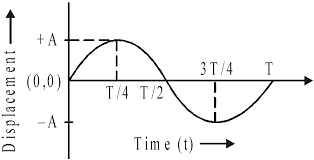Science > Biology > General Biology > Diversity of Living Organisms > Binomial Nomenclature Biologists follow universally accepted principles to provide scientific names to known organisms. Each name has two components – the Generic name (genus) and the specific epithet (species name). Hence the system is called binomial nomenclature. We can compare the generic (genus) […]
Category: Pure Sciences
Taxonomic Hierarchy
Science > Biology > General Biology > Diversity of Living Organisms > Taxonomic Hierarchy In this article, we shall study the taxonomic hierarchy and the concept of species. The Concept of Species: A group of living organisms consisting of similar individuals capable of exchanging genes or interbreeding is called species. They are usually described in […]

Science > Biology > General Biology > Branches of Biology > Branches of Biology (Brief Idea) In the previous article, we have studied the importance of biology. In this article, we shall study different branches of biology. On the Basis of Kind of Organism: Depending upon the kind of organism, the branches of biology are […]

Science > Biology > Introduction to Biology > Importance of the Study of Biology Biology is a branch of science which studies living beings that all plants and animals including humans. It is a word derived from Greek words (Greek: bios = life; logos = study). No one can say when the study of biology exactly […]
Graphical Representation of S.H.M.

Science > Physics > Oscillations: Simple Harmonic Motion > Graphical Representation of S.H.M. In this article, we shall study graphical representation of S.H.M. i.e. variation in displacement, velocity, and acceleration with time for a body performing S.H.M. starting from a) the mean position and b) from the extreme position. Graphical Representation of Linear S.H.M. of […]
Coulomb’s Law

Science > Physics > Electrostatics > Coulomb’s Law In this article, we shall study the COulomb’s law of electrostatics, its explanation, uses, and limitations. Coulomb’s Law of Electrostatics: Statement: The force of attraction or repulsion between two electric point charges is directly proportional to the product of the magnitude of the charges and inversely proportional […]
Normal Electric Induction

Science > Physics > Electrostatics > Normal Electric Induction In this article, we shall study the concept of normal electric induction, electric field, and electric flux. Normal Electrical Induction: The number of tubes of induction passing normally through a unit area in an electric field is called Normal electric induction. Total Normal Electrical Induction: The […]
Gauss’s Theorem and its Applications

Science > Physics > Electrostatics > Gauss’s Theorem and its Applications In this article, we shall study the gauss’s theorem and its applications to find electric intensity at a point outside charged bodies of different shapes. Gauss’s Theorem: Statement: Total Normal Electric Induction over any closed surface of any shape in an electric field is […]

Science > Physics > Electrostatics > Electric Intensity Due to Charged Sphere In this article, we shall study to solve problems to find electric intensity at a point due to a charged sphere. Example – 01: A charge of 0.002 µC is given to an isolated conducting sphere of radius 0.5 m. Calculate the electric […]

Science > Physics > Electrostatics > Mechanical force per Unit Area of Charge Conductor In this article, we shall study the cause of mechanical force acting on a charged conductor and hence shall derive an expression for mechanical force per unit area of the conductor. Expression for Mechanical Force per Unit Area of a Charged […]